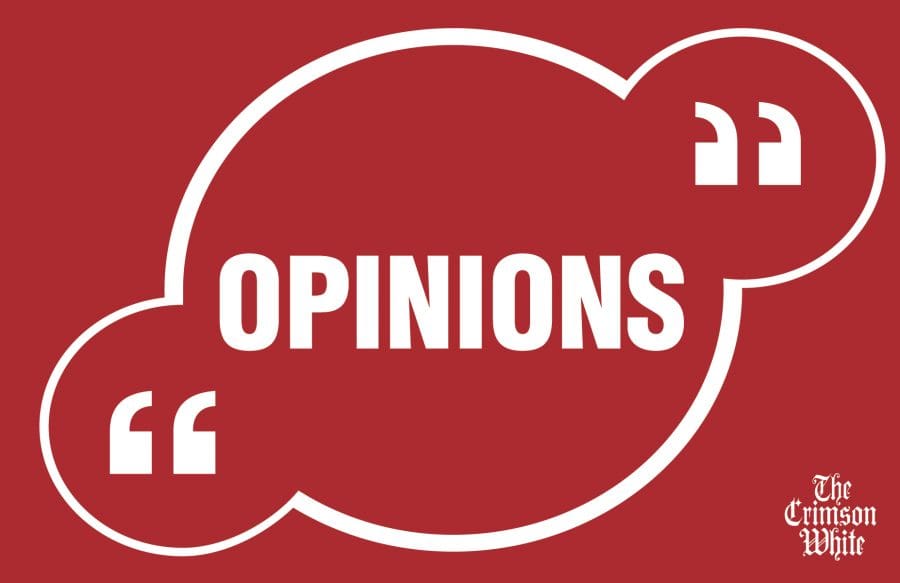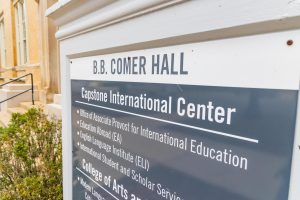The Olympics reveals inequalities in sports
February 13, 2022
The 2022 Winter Olympic Games provides a stage for the best athletes from around the world to showcase their talents and often fosters a unique sense of pride in the nations and communities these athletes call home.
The University of Alabama has been lucky enough to see some of its own students and alumni participate in the Games in recent years. However, behind the glitz and glamor of the Olympic Games lie some unfortunate realities — realities that expose inequality in athletics at-large.
As a 2014 analysis from the New Yorker explains, the Olympics — and especially the Winter Olympics — are often a better demonstration of wealth and GDP than innate athletic talent. Olympians from richer countries have more resources available to pursue their dreams of gold. They have greater access to training, equipment and state-of-the-art facilities.
This uneven playing field is particularly prominent in more niche events like curling, bobsledding and ski jumping, all of which require expensive equipment and unique training spaces.
Although nothing can take away from the impressive feats that Olympians accomplish, it should be kept in mind that there are an unknown number of talented athletes out there who will never gain the same international recognition because they do not have the economic resources necessary to fulfill their athletic potential.
This inequality in global athletics reflects a similar inequality in college sports. A 2021 study examined how high school varsity athletes from wealthier communities are disproportionately more likely to become college athletes.
The study, which tracked 7,810 students’ socioeconomic conditions and athletic participation, reports that 23% of student-athletes “from the most well-off households” went on to become college athletes, as compared with only 9% of their low-income counterparts.
In an interview with Ohio State News, co-author of the study James Tompsett said that “the idea of sports as a true meritocracy where the best athletes on the field will succeed is largely a myth.”
“A privileged background helps students succeed in sports just as it does in other parts of life,” Tompsett said.
This certainly rings true with the New Yorker’s findings concerning the Olympics; it is unsurprising that this is a reality in broader athletics.
Indeed, the accessibility of facilities, equipment and recreation time that contributes to Olympic success also affects the success of high school athletes looking to pursue their sport in college. As the study reveals, the increased accessibility found in wealthier communities promotes earlier participation in athletics, which directly contributes to better performance.
More niche sports are also more readily available in wealthier communities — such sports help student-athletes stand out among their peers when it comes time for college recruiting. Other factors like participation in expensive club teams expand the divide even further.
Coming from a wealthier background inherently works to an athlete’s advantage — whether they are gunning for a starting role on the Crimson Tide or looking to secure a spot in the next Olympic Games. The wealthy have greater access to every external factor necessary for athletic success.
Of course, this economic divide also has negative implications for racial minorities here in America, as income remains strongly divided along racial lines. It is an unfortunate reality that due to systemic racism, affluent communities are more often white. This means that racial minorities are the ones being disproportionately deprived of the resources that will increase athletic success.
It is worth mentioning that minorities in athletics at The University of Alabama already face enough hardships. There have been numerous allegations of harassment and discrimination in a variety of the University’s athletic programs over the years, and the Crimson Tide were segregated until 1970. Minority athletes seem to have little protection from inequity despite the profit the University reaps from their successes.
While it is true that only a select few athletes will ever find themselves in a position to pursue a career in professional sports, the importance of this inequality grows exponentially when you consider its direct connection to education.
Athletic success is directly tied to future academic success: Student-athletes can be admitted to prominent institutions on scholarship if they have developed proficiency in their sport — especially if it is one of those niche sports previously discussed.
Wealthier (and whiter) athletes have more opportunity for athletic success, which then contributes to educational success in the form of scholarships and admission to prestigious colleges, which in turn can lead to improved career success — and more wealth. In this light, the economic divide in athletics can be seen as a vicious cycle that only breeds further inequality.
We all love to celebrate athletic achievement — the massive prominence of the Olympics illustrates that perfectly — and we are particularly enthusiastic about sports here at the University. But there are some things that are more important than world records and national championships; one of those things is equality.
This economic inequality highlighted by sports has a far broader scope. It is something that touches every corner of society. It is not something that has any single solution, but rather it is something that requires massive, wide-reaching systemic change.
The Olympics serve as a time for us to reevaluate the world we live in. As we watch cultures from around the world compete, we can also examine the cultures we create at home, and how these cultures can either encourage or dismantle inequality.
But of course, before a problem can be solved it must first be recognized. Understanding the impact of wealth disparities on one of our favorite human pastimes — athletics — might help us recognize the greater economic disparities that affect our communities both locally and globally.
Questions? Email the opinions desk at letters@thecrimsonwhite.com.



















![UPDATE | New details have emerged about U.S. Immigration and Customs Enforcement’s arrest of doctoral student Alireza Doroudi.
— Yesterday, a University spokesperson confirmed that a doctoral student was arrested by federal immigration authorities, without providing the student’s name, declining to share specific information due to federal privacy laws.
“International students studying at the University are valued members of the campus community, and International Student and Scholar Services is available to assist international students who have questions,” said Alex House, associate director of media relations for the University. “UA has and will continue to follow all immigration laws and cooperate with federal authorities.”
— An employee at the Pickens County Jail confirmed that Doroudi is being held there, adding that the facility typically sends ICE detainees to a detention facility in Louisiana.
— The Department of Homeland Security provided a statement about Doroudi’s arrest:
“ICE HSI [Homeland Security Investigations] made this arrest in accordance with the State Department’s revocation of Doroudi’s student visa. This individual posed significant national security concerns,” a DHS spokesperson said. The statement did not provide details about why it claimed Doroudi posed national security concerns.
— Students for Justice in Palestine at UA, formerly known as Bama Students for Palestine, said in a statement on social media Thursday that it was “outraged” to learn of his detainment and that he "was not involved, nor has he ever been involved in any organizing or protests related to our organization."
This is a developing story and will continue to be updated. Read the updates at the link in our bio.](https://scontent-iad3-1.cdninstagram.com/v/t51.75761-15/486944895_18492822301025566_6944596333023050206_n.jpg?stp=dst-jpg_e35_tt6&_nc_cat=107&ccb=1-7&_nc_sid=18de74&_nc_ohc=hnp26Pzwsm0Q7kNvgH09W0S&_nc_oc=AdmIBEMuR_aRgaBd00Hlot3E59Vj_4lQyCImLLgp8CLdbxpSmLU25dhU_MO_Zul-qcU&_nc_zt=23&_nc_ht=scontent-iad3-1.cdninstagram.com&edm=AM6HXa8EAAAA&_nc_gid=YBEq6-Vs4rWbY-dRMs1BXw&oh=00_AYHnYcN7EoIVRd382z8S3q637qPSQr0EC8NJdp-tCJWKbA&oe=67F30BB0)

